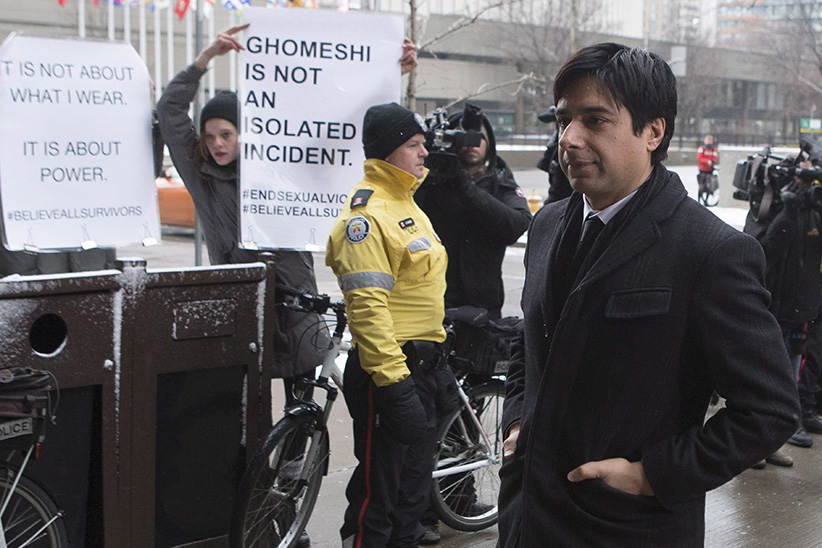Ghomeshi trial ends in controversy
Zachary Voth
Ottawa, ON.
March 25, 2016

Jian Ghomeshi has been found not guilty of all charges, ending a legal case and trial that has been the subject of international attention. Justice Horkins found that the testimony given by the three alleged victims was inadequate evidence to convict Ghomeshi of four counts of sexual assault and one count of overcoming resistance to sexual assault by choking, which can carry a life sentence. The former CBC host still faces a separate sexual assault allegation that will go to trial in three months.
The verdict has inspired a strong reaction on twitter and other public forums, both on and offline. Much of the discourse surrounding Ghomeshi's case has been connected with a wider discussion on sexual assault, victim blaming, and women's rights. Individuals who rejected the judge's verdict, including public figures like Lisa Macleod, an Ontario MPP, posted in support of sexual assault survivors. Many people were also concerned that the verdict would discourage victims of assault from coming forward, and affirmed that they #believewomen and #believesurvivors. Another common theme was the affirmation that a not guilty verdict does not equal innocence, implying that Ghomeshi likely did in fact commit those crimes.
That particular idea, about the concept of innocence and the concept of acquittal, shows a fairly nuanced understanding of the legal system Canadians live under. It is absolutely true that a verdict of not guilty cannot establish that the accused as innocent. It only shows that the evidence does not prove guilt beyond a reasonable doubt.
It also relates to another legal concept that might require a nuanced understanding of the law: The burden of proof. In Canada's legal system, the prosecution, relying on the testimony of three alleged victims, had to prove beyond a reasonable doubt that Jian Ghomeshi had committed the crimes in question. Ghomeshi and his defence did not have to prove that he was innocent. The Crown had to prove that he was guilty. The evidence and testimony presented by the prosecution was examined over the course of the trial, and for a variety of reasons, which are all listed in Justice Horkins' decision, the case came up short of the key mark: Beyond a reasonable doubt.
This is not to say that sexual assault cases are handled particularly well in this country. There are numerous accounts of police discouraging women from reporting assault, of cases being mishandled, and of the justice system (Robin Camp comes to mind) failing to treat sexual assault victims with respect. These are real problems. They will be solved, albeit incrementally; by stronger police procedures, education, and by addressing the underlying problems that contribute to sexual assault.
What will not solve these problems is the abandonment of a key legal principle. Defendants, no matter their reputation, are entitled to a day in court. Victims of sexual assault should be believed, in that their claims are not dismissed out of hand without due process. However, believing victims, as the hashtag goes, cannot amount to a summary conviction, or to the transfer of the burden of proof. The Supreme Court has affirmed that the Crown must prove a defendant's guilt. This still holds, even when the public largely takes that guilt for granted. The verdict, while unpopular, is legitimate. Ghomeshi was not proven guilty. The issues his case relates to, while important, have no bearing on that decision. It is only the very specific charges levelled against Ghomeshi that went to trial. Not the larger issue of sexual assault.
There is a chance that the case will be appealed to a higher court, and Justice Horkins' verdict will be examined further. Whether guilt has been adequately proven by the Crown may be revisited. Until then, Ghomeshi will not face the possibility of further legal punishment, while a more general public shaming may nonetheless continue. The justice system, not the police system, treats every crime the same way, in that guilt must be proven by the prosecution beyond a reasonable doubt. This is a system consistent with the rights Canadians enjoy: To be presumed innocent until proven guilty. The public should keep this important fact in mind, even when the system produces an outcome they don't support.
